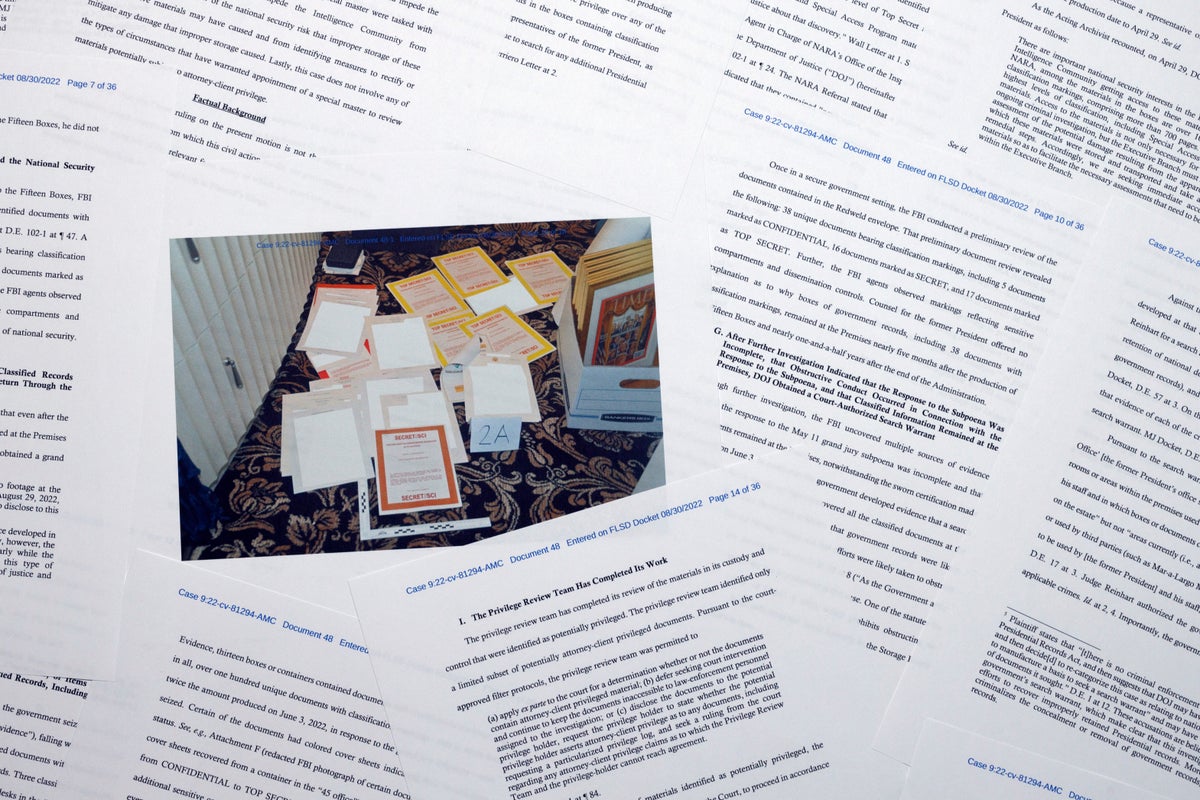
Donald Trump won a minor legal victory in his battle against the Justice Department on Monday as a judge ruled that a special master should be appointed to review documents seized from Mar-a-Lago to determine whether any are protected by executive privilege.
The DoJ is expected to appeal the decision, which was expected as the judge had previously noted that she was inclined to grant the former president’s request. Justice Department attorneys argued that the appointment was unnecessary given that their teams had already conducted such a review, while also rejected the idea that Mr Trump could even use executive privilege to shield documents in this manner.
The sudden focus on such an obscure legal role elicted a predictable response from Twitter users outside of the legal profession, many of whom found the court-appointed official’s title humorous.
So just what exactly is a “special master”, and what could one’s role be throughout Donald Trump’s legal battle?
It’s essentially a court-appointed legal professional whose duty can be narrow or wide-ranging: Their job is to carry out the judge’s orders, compel the collection of evidence, and other roles generally spelled out on a case-by-case basis.
In this particular scenario, the next step for both Donald Trump’s team as well as the Justice Department will be to submit their proposals, due by Friday according to Judge Aileen Cannon, for the scope of the special master’s power as well as potential candidates for the job. In the coming days, the exact role of the special master will be spelled out as well as limitations on the review process, including likely a time limit for it to occur within. Until then, the DoJ will be barred from using the documents to determine whether a crime was committed in their storage at Mar-a-Lago.
Should the DoJ fail to block the special master’s appointment in appeal, the hypothetical official will likely be restricted to reviewing documents and issuing a report to the judge describing which, if any, should be shielded from DoJ prosecutors. Both parties will have the opportunity to appeal that report, too.
Complicating the issue is the classified nature of many of the documents; any candidates suggested by either party will require the requisite security clearance to view documents marked “top secret”, technically the government’s highest level of classification. Because of this, former intelligence officials are likely to be among the candidates suggested by both parties for the special master’s review. In that manner, the appointment could mirror the hiring of former FBI director Robert Mueller as the now-famous special counsel overseeing the investigation into Mr Trump’s 2016 campaign and Russian election interference.
All in all, it’s unlikely that this appointment will end up being the magic bullet that Mr Trump’s legal team clearly hopes it will be against the DoJ’s case. For that to happen, a special master would have to declare all of the thousands of pages of documents taken from Mr Trump’s home as privileged, or at the very least block the DoJ from using any of the documents marked with various classification levels thereby thwarting their ability to prosecute him on the mismanagement of classified materials. And in her ruling, the judge on Monday specified that intelligence officials may continue reviewing the documents to determine if national security was threatened by their storage at Mar-a-Lago.
A spokesperson for the Justice Department said on Monday that the DoJ was “examining the opinion and will consider appropriate next steps in the ongoing litigation”.







